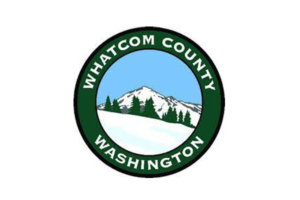The story of New Venture Advisors’ inception in 2010 coincides with a pivotal moment in the United States’ local food movement. At that time, awareness was gradually dawning on the connections between hunger, health issues like obesity, and the availability of healthy, affordable food. Institutions such as schools and hospitals were expressing interest in sourcing locally, yet could not find the necessary products at a scale to meet their needs. Farm-to-table dining experiences were still a rarity in the restaurant scene. And small to midsize farms were struggling to access markets that provided stable, livable income.
Against this backdrop, the emergence of initiatives like food hubs, spearheaded by forward-thinking communities like Dane County, marked a turning point. These projects tackled immediate concerns surrounding market access for farmers and healthy food access for communities and laid the groundwork for sustainable economic growth within the local agricultural sector.
Over the decade, a remarkable transformation unfolded in the food distribution and access landscape. Municipalities, food banks, growers, small businesses, and many others have come together to create innovative solutions that promote local food and ensure equitable access to fresh produce for all community members. These projects catalyze positive change, bridging the gap between producers and consumers while creating economic resilience across local food systems.
With the expansion and diversification of our portfolio in response to this evolving food system landscape, we recognized an opportunity to organize into specialized teams equipped with the expertise to address the challenges and opportunities our clients bring to us. We now have three lines of business, spearheaded by industry professionals who bring a wealth of knowledge, experience, and skill to our work. I’m quite proud to introduce them.
Food Enterprise Planning Team
The Food Enterprises Planning Team assists clients in evaluating, designing, and implementing feasible solutions for their food system or food business that maximize their impact and investments. These projects involve the hard and soft infrastructure of regional food systems—the programs, businesses, and facilities that enable food to be produced, processed, distributed, sold, and made available where it is needed. Our expertise encompasses these types of developments and many more from our innovative clients.
-
- Food hubs, food campus, community food center
- Public market, food hall
- Small format grocery, mobile markets
- Food & livestock processing
- Community kitchens, food business incubation
Led by Andrea Carbine, the core of our approach is a deep understanding of the interconnectedness of food systems and the importance of community-led design. We help our client teams make well-informed decisions that are grounded in market data, community input, and business analysis. We provide feasibility analysis, business planning, conceptual design, and a variety of advisory services from inception through construction and launch. Our methodology has proven instrumental in securing funding and support for small projects and ambitious developments.
Example of Projects: CLiCK, Inc (Windham, CT), Damian’s Meat Processing (Southeastern Michigan)
Food System Planning Team
We couldn’t be more excited about the growth in demand for food system planning. Food System Plans are a set of interconnected, forward-thinking activities that strengthen a food system by creating and implementing programs and policies. Planning brings structure and strategy to local food systems and sets the policy foundation for improvement. Plans can be created for a single neighborhood, at the community level, or for a town, city, county, state, or region.
Led by Eileen Horn, a self-proclaimed policy nerd, our food system planning team has deep and broad food system expertise. Our goal is to help clients assess the issues and opportunities in their food system and create strategic action plans that are grounded in community voice. The process may include all or some of these services, depending on where our clients are in their planning process.
-
- Food System Assessment — Establishes the baseline metrics that a food system plan can impact, typically encompassing production, climate change, infrastructure, retail, food access and security, consumption, food waste, and recovery.
- Food Policy Assessment — Identifies policy gaps and barriers related to the goals that emerge during the planning process and enables the plan to include specific, concrete recommendations for policy change.
- Food System Plan — Prioritizes a set of goals for the food system with specific policy recommendations and action plans. Goals are identified and prioritized through direct engagement with community members, and the resulting plans are often presented for adoption by elected officials.
- Implementation Coaching — Assistance in forming councils, committees, and other support to ensure that the conditions are in place to carry out plan actions.
Example of Projects: Wichita (KS) Food System Master Plan, Manchester, NH Healthy Food Access Plan
Funding Development Team
Our food system expertise makes us particularly effective at identifying funding sources and positioning our clients to obtain grants, many of which successfully fund the continuation of their projects. Led by Sheree Goertzen, we help our current clients secure financial support to carry out their food enterprise or food system plans. This sometimes begins with a funding development plan that identifies well-matched sources, target amounts, application deadlines, sample language, etc., and can also include grant writing and review services.
It’s incredibly rewarding as the founder to lead a team that has developed around individual interests and skills and coalesced into specializations that provide comprehensive solutions for our clients. Not only that, we admire each other and recognize that it takes the force of the marketplace, good policy, and sufficient funding if we are ever going to have a food system that we can all be proud of.
Photo Courtesy of Image Source Trading Ltd via Shutterstock



